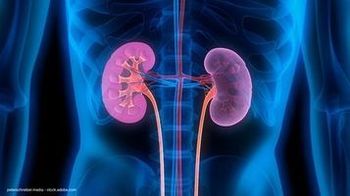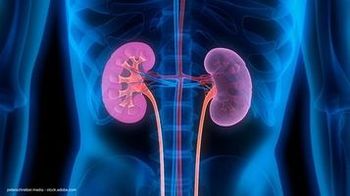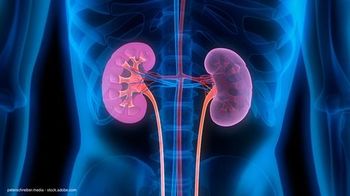
Data find increase in UTIs caused ESBL-E coli
Washington--Over a 5-year study period, researchers have documented a significant increase of extended-spectrum beta-lactamases producing Escherichia coli (ESBL-E coli) isolated from urinary tract infections in both hospital and community settings.
E coli-producing ESBL are being recognized as an increasing problem, leaving few therapeutic options when antibiotic therapy is needed, according to Dr. Ena, who presented the findings at the Interscience Conference on Antimicrobial Agents and Chemotherapy. Although Spain is ranked twelfth among European countries in the use of antibiotics, a marked increase in ESBL-E coli has been seen in that country. Urinary tract infections caused by these microorganisms have been reported to be resistant to a wide range of antimicrobial agents, including third-generation cephalosporins, trimethoprim-sulfamethoxazole (Bactrim, Septra, et al), and fluoroquinolones commonly used to treat this problem.
During the study, 9,705 E coli were isolated from urine samples. Of these, 206 isolates (2.12%) were ESBL-E coli. Over the 5-year period, the percentage of ESBL-E coli isolates rose from 0.20% (two cases) in 2000 to 5.52% (89 cases) in 2004, a significant 25-fold increase (p=.000).
Studies comparing 161 ESBL-E coli isolates (one isolate per patient) with a random sample of 161 non-ESBL-E coli isolates showed significant (p=.000) reductions in susceptibility to ciprofloxacin (Cipro, Proquin) (43% vs. 74%), trimethoprim-sulfamethoxazole (49% vs. 69%), amoxicillin-clavulanate (Augmentin) (76% vs. 89%), piperacillin-tazobactam (Zosyn) (92% vs. 99%), and gentamicin (Garamycin) (79% vs. 94%).
Urology patients susceptible
The case-control study of 62 valid clinical charts showed a greater proportion of ESBL-E coli isolated in non-hospitalized patients compared with non-ESBL-E coli (26% vs. 6%, p=.06), Dr. Ena reported.
Newsletter
Stay current with the latest urology news and practice-changing insights — sign up now for the essential updates every urologist needs.





